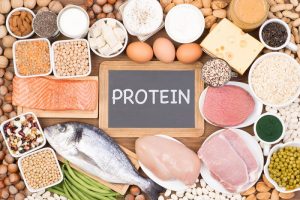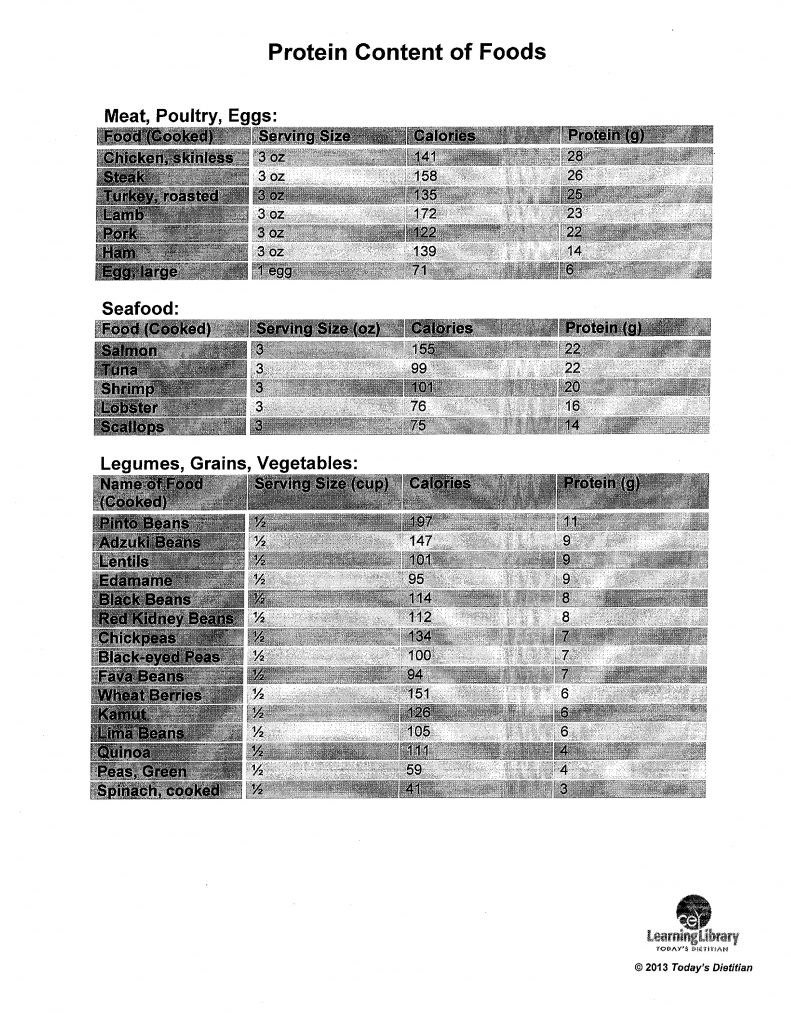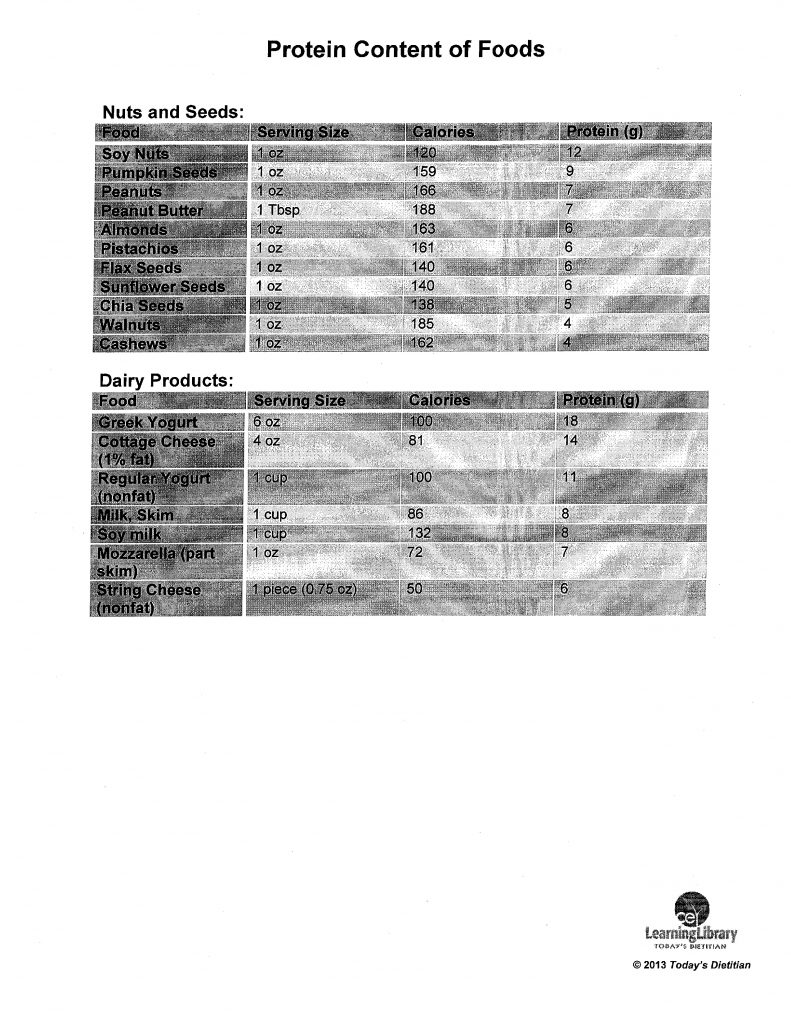Submitted by Dave Draeger, CDM, CFPP,
Director of Dietary and Dining Services

As previously mentioned, protein is required to maintain a healthy lifestyle. Individuals need to understand that protein is required in the diet and should be consumed in adequate amounts each day. Some diet trends such as Atkins, Zone, and South Beach involve consuming large amounts of protein rich foods and decreasing grains, starches, vegetables, fruits, cereals and carbohydrates.
The National Academy of Medicine suggests that the average person consumes .8 grams of protein per kilogram of body weight. Athletes, highly active individuals, people with underlying health conditions, and aging adults require greater amounts of protein, up to 1.5 grams per kilogram of body weight. The effects of protein deficiency and malnutrition among aging adults influences immunity, weakening of the heart and respiratory system, decline in muscle mass, bodily functions and strength.
Choosing proper protein sources is challenging based on diet trends, protein sources available, cost, and current health conditions. All proteins are not created equal.
Animal based foods tend to have higher protein content than plant based foods. Animal proteins include unwanted fat, cholesterol and calories. Animal based proteins include sources from meat, poultry, dairy, fish and eggs. Best sources of lean protein include, lean cuts of beef, white meat poultry with the skin removed, tuna, salmon and eggs. A serving of animal protein is equivalent to the size of a deck of cards.
Plant based proteins are found in fruits, vegetables, grains, nuts and seeds. Establishing a balance between the two is best. If the majority protein in the diet comes from plants, make sure to mix up the sources to ensure all essential amino acids are covered. Legumes, nuts, seeds and whole grains are excellent sources of plant protein.
Some references and nutrition recommendations available on line include: Dietary Reference Intakes, Healthy Eating Plate and MyPlate, and the below images from Today’s Dietitian. Utilizing best practices supported by evidence based research to determine you protein needs and types will ensure a healthy body.


